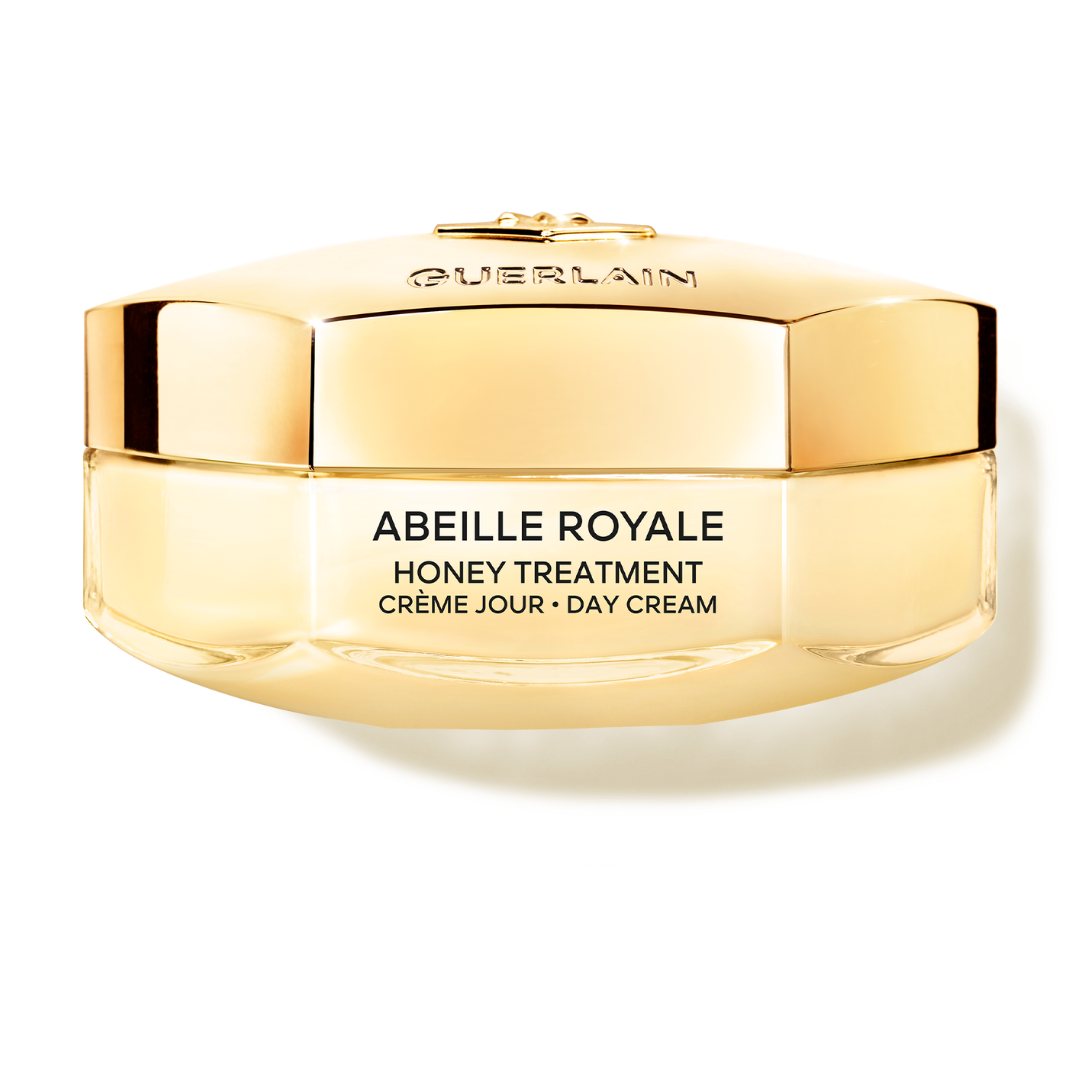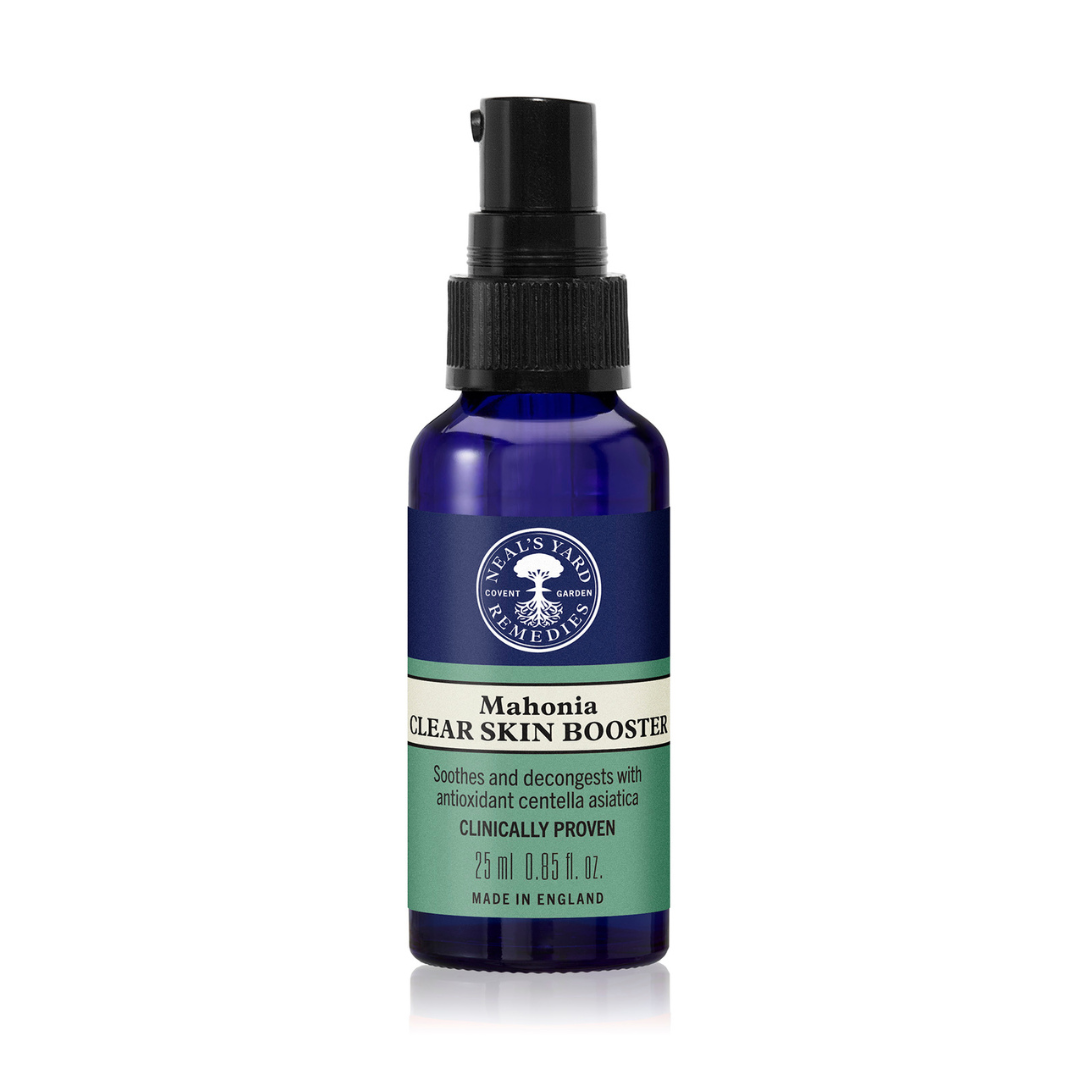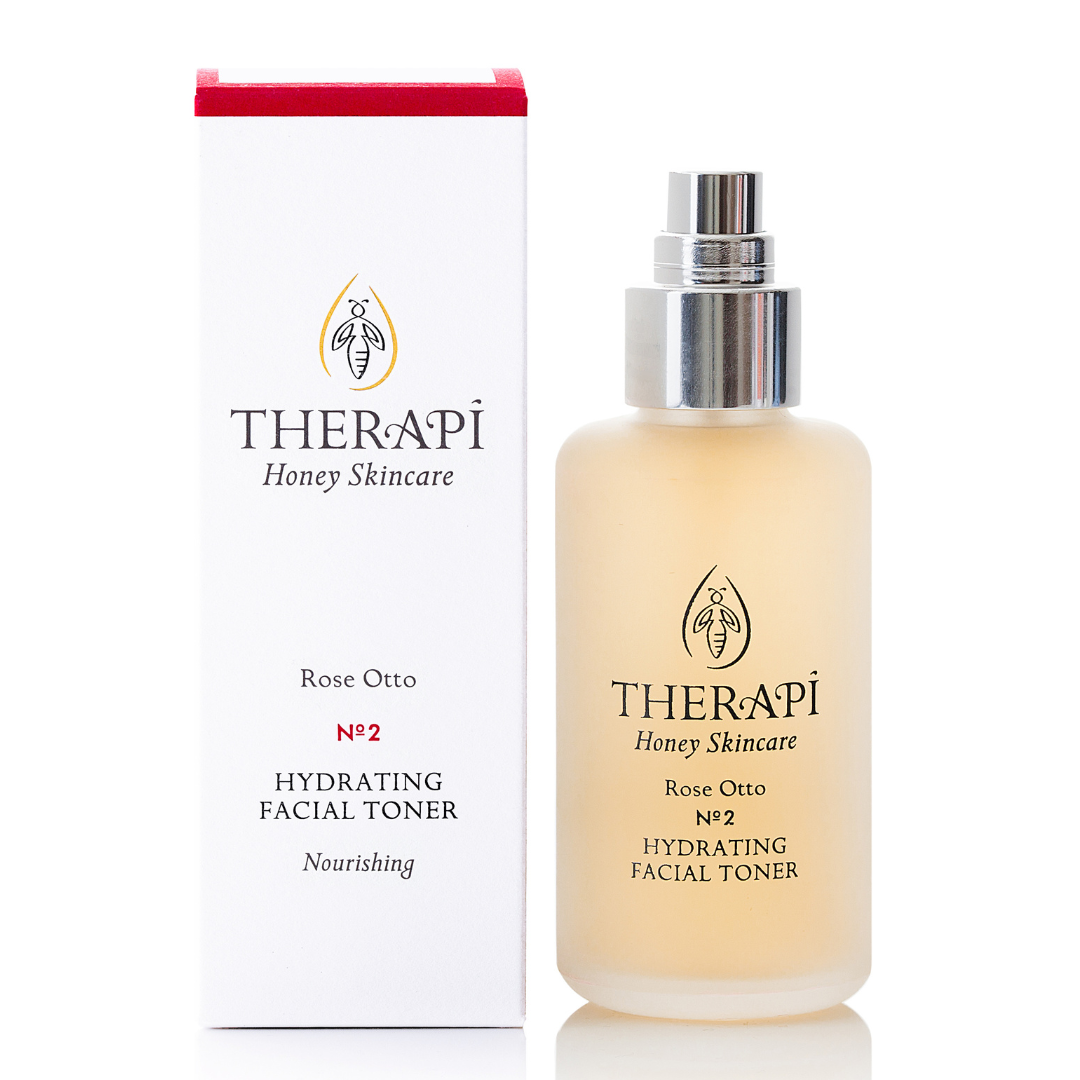In The Loop: Beauty's hidden toll on bee populations
With the worrying news of pollinators facing decline in 2023, is it time for the beauty industry to look at how it is influencing their dwindling numbers?
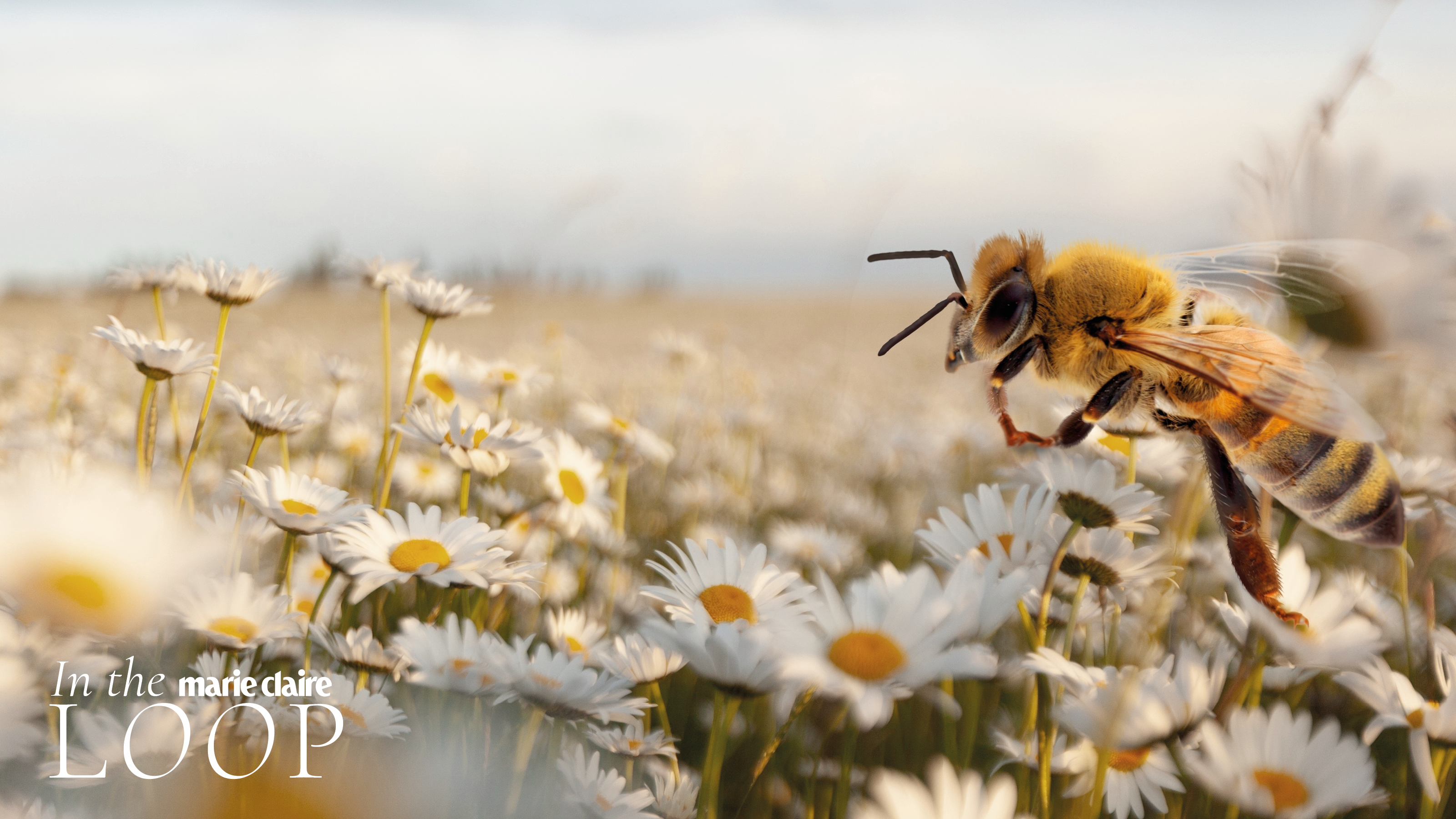
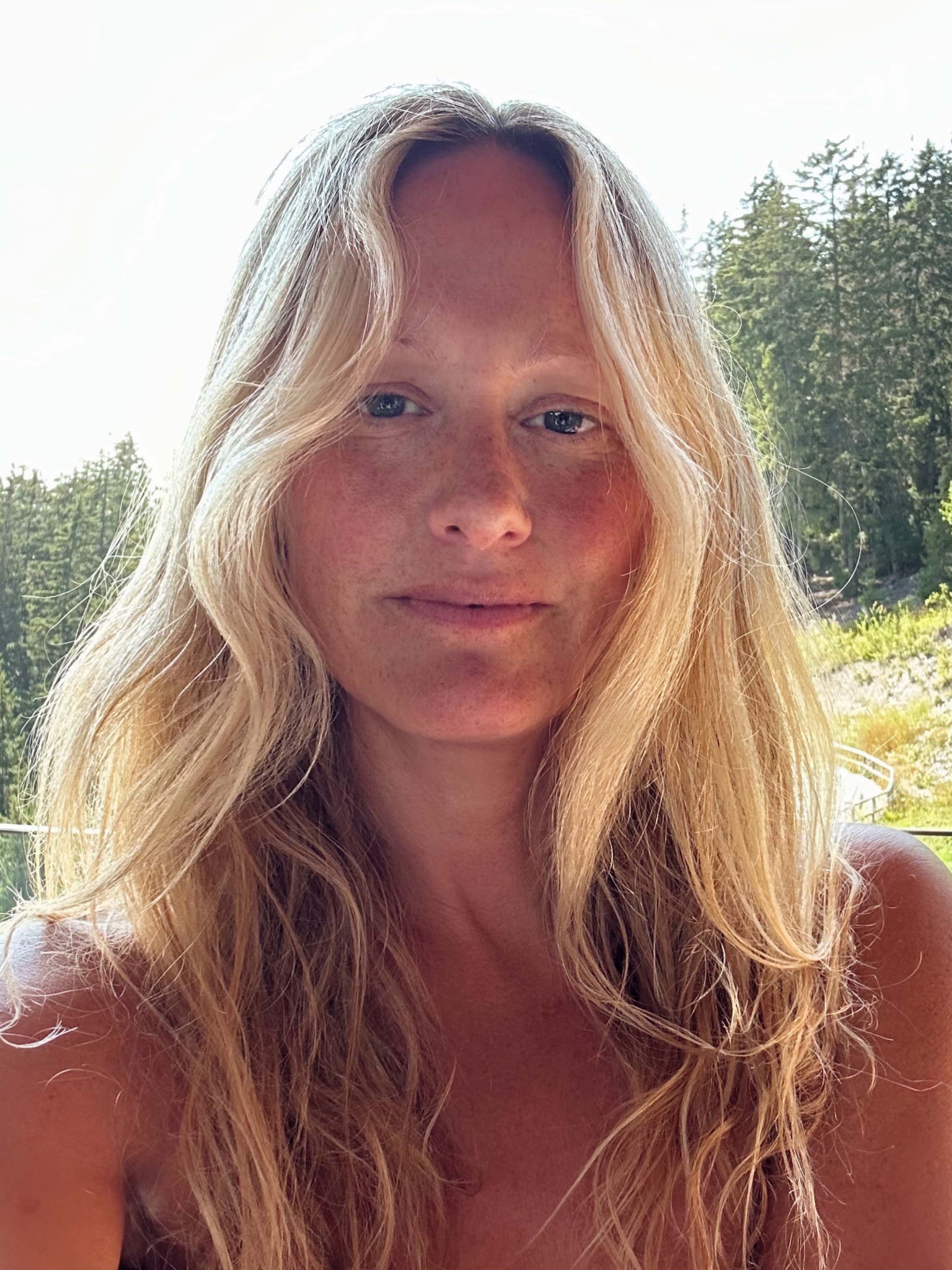
It’s Bee Awareness Month and Bee Awareness Day on 19th of September, so a good time to remind us all that bees are essential for our survival; they pollinate much of what we eat and play a critical role in sustaining ecosystems around the world.
“It is estimated that bees pollinate 80% of the world’s flowering plants, which constitutes an environmental and ecosystem service that the national Institute of Agronomic Research has estimated at 153 billion euros per year worldwide,” says Cecile Lochard, Chief Sustainability Officer at Guerlain - a brand on a mission to repopulate bees, with a partnership with the Ouessant Island Brittany Bee Conservatory Association that dates back to 2011, a bee project with UNESCO, and a Bee School Volunteering Program, Good Planet Foundation.
A post shared by Guerlain (@guerlain)
A photo posted by on
But as we all know, the last decade has been devastating for insect populations, and bees have been hit hard, with environmental organisation Greenpeace claiming that populations are shrinking by a third in the UK. Honeybee hives in the US have recently experienced the second highest mortality rate ever recorded, as revealed by a survey sponsored and conducted by the non-profit research organisation, Bee Informed Partnership. Emerging studies now indicate that this decline is starting to have a discernible impact on humans.
Meanwhile, the beauty industry buzzes with bee-derived products, and while they are widely used, quantifying the exact amount of bee product used globally is challenging due to factors such as many beauty products being formulated, produced, and sold internationally, making tracking a single ingredient's use across global supply chains difficult. What is known is that bee-derived products like honey, beeswax, propolis, royal jelly, and bee venom, are popular in the beauty industry for their various beneficial properties so it’s likely that their usage is in the tonnes, given the size of the global beauty industry and the growing demand for natural ingredients.
Although ingredients derived from bees might appear innocuous at first glance, bee exploitation is rife - and “beewashing” in the beauty industry is on the rise. Responsible sourcing is crucial.
Organic beekeeping practices are better for the bee’s welfare and do not deplete their natural resources. Furthermore, by prohibiting the use of artificial pesticides, organic farming offers habitats for bees to thrive - there are for example 75% more bees on organic farms
The Soil Association
A post shared by Soil Association (@soilassociation)
A photo posted by on
What are the benefits of bee products in beauty?
Let’s start by looking at why bee products are so popular in skincare, haircare and make-up. They offer a plethora of benefits and many non-vegan brands position bees as invaluable contributors to beauty solutions.
“Bee ingredients cannot be patented, are impressively multi-functional and have millennia of proven results to back them up. Honey and bee remedies feature significantly in traditional medicine practices from all cultures - for internal use and externally for skin maladies with even the NHS now routinely using medical honey dressings for slow to heal wounds,” says Esme Hawkes, beekeeper, biologist and co-founder of Therapi Honey Skincare.
Marie Claire Newsletter
Celebrity news, beauty, fashion advice, and fascinating features, delivered straight to your inbox!
Honey, especially Manuka, has powerful antimicrobial properties due to its unique components and it is renowned for its natural moisturising properties. Honey also helps retain skin's hydration. Propolis offers UV protection, healing, and antimicrobial benefits from its rich phenolic compounds. Royal jelly promotes collagen production, aiding skin health with its unique peptides and acids. Bee pollen nourishes skin with vitamins, flavonoids and fatty acids. Beeswax is a vital cosmetic emulsifier and a staple in lipsticks, and bee venom, sometimes referred to as 'nature's Botox', stimulates blood circulation, promoting collagen production and offering anti-inflammatory and antimicrobial benefits.
How is the beauty industry contributing to the decline of bees?
Honey bees, similar to agricultural animals like cattle and chickens, are industrially bred in tight spaces. On major bee farms, queen bees have their wings clipped to confine them, hives are smoked to calm bees and honey is swapped with a less nutritious sugar substitute.
“Industrial scale honey production is often as bad as any big business industrial scale farming - of land or animals,” says Hawkes. “It views a bee colony as a honey factory or pollination service unit and often involves a lot of unnatural management like hormone stimulation, over-harvesting, processed sugar and pollen substitute feeding (think junk food) the queen, drone culling, long-distance travel, overstocking and spreading of diseases, routine use of antibiotics, swarm suppression and queen breeding programmes that have reduced the diversity and genetic variety necessary for resilience, adaptation and survival.”
A post shared by Therapi Honey Skincare (@therapihoneyskincare)
A photo posted by on
Overall unsustainable harvesting practices on an industrial level reduce bee colonies' health and longevity, and therefore their extraction for the beauty industry, like the food industry, can contribute to environmental harm. However, there are processes and techniques used to prevent and maintain a healthy colony performed by small producers that can be applied to large-scale industrial farming too.
“Our beehives’ health is managed using propolis, essential oils, lemon juice and the use of antibiotics is completely prohibited in our practice,” says AnaMaria Puscasu founder of Raw Pot. “These natural techniques work by strengthening the bees' immune system, resistance and general health and longevity of the colonies. We do not use bee smoker to calm our bees, but instead we use probiotic mixed with raw honey spray every time we work in our apiary alternating with lemongrass essential oil. This soothes bees in a natural way without side effects, while spreading friendly microorganisms in the beehive.”
A post shared by Raw Pot - Organic Raw Beehive Superfoods 🐝 (@rawpothealth)
A photo posted by on
What is processed beeswax?
Beeswax plays a pivotal role in lipstick formulations. It not only gives the lipstick its structure and form but also adds volume, making beeswax a preferred choice for this purpose. Beeswax is created by melting a honeycomb with boiling water before straining and cooling it. The beeswax industry operates with minimal regulation, allowing producers to potentially introduce harmful chemicals, additives, and toxins without full disclosure. To reduce production costs, some even mix beeswax with paraffin, a byproduct of crude oil. There are so many great vegan alternatives like candelilla, carnauba, and sunflower seed wax that are all plant‐derived.
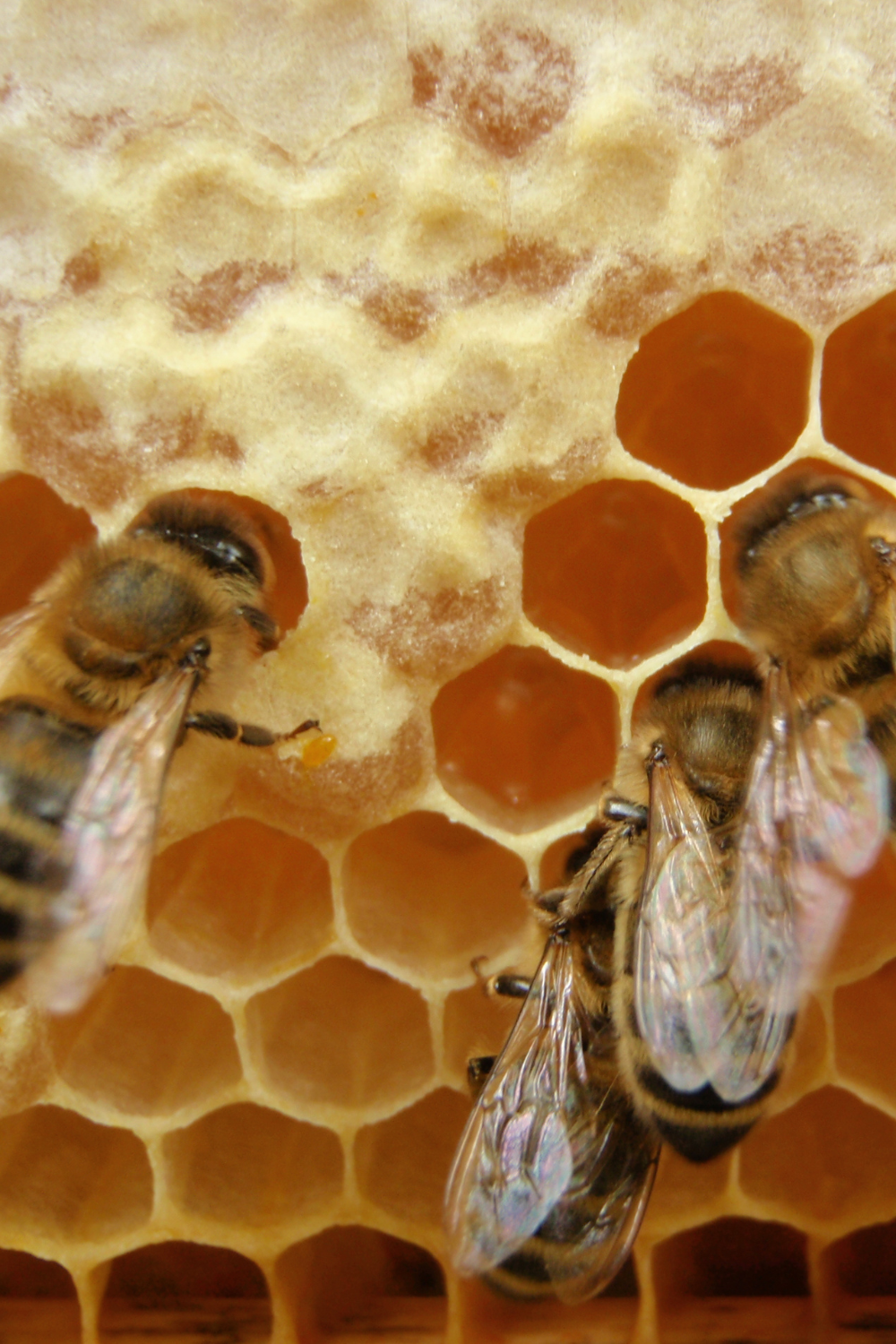
What are commercial bees doing to biodiversity?
Honey bees are adaptable foragers, taking advantage of any available floral resources. Consequently, the large populations of honey bees cultivated for products such as honey, beeswax, and propolis can endanger wild bee species and other indigenous pollinators. In the long run, beekeeping might pose detrimental effects on biodiversity, compromising the well-being of local ecosystems and the broader environment.
A post shared by Therapi Honey Skincare (@therapihoneyskincare)
A photo posted by on
How can we support bees in the beauty industry?
One of the easiest ways we can support bees is by not contributing to their industrial farming and instead supporting permaculture businesses and the planting of ingredients that have not been treated with pesticides. Organic farming standards are great for bees and wildlife.
“Organic standards build in regulations that safeguard the integrity and health of the bee colony and prohibit the use of the toxic agrochemicals on the land that are creating an insect Armageddon e.g. the neonicotinoid insecticide group - fatal nerve agents. In reality, the problem is a cocktail of biocides used in our food and farming systems, but the neonics have become the headliner,” says Hawkes.
A nicotine-like chemical, neonicotinoids are not externally sprayed onto the plant, but rather taken up by the plant internally. This internal action means that the toxin is present in the plants' pollen and consequently eaten by the bees, who as a result become paralysed and quickly die. Although severely restricted in the EU now, neonicotinoids are still extremely prevalent worldwide. CEO of Neals Yard Remedies, Anabel Kindersley’s #StandByBees coalition now includes more than 105 British businesses and organisations and is making the business case to the government against the pesticide use.
Pesticides, coupled with a restricted genetic diversity, inadequate nutrition, and subpar care, only add to the mounting challenges faced by the global bee population.
There are many local beekeepers who are loving stewards of the hives they oversee: They evaluate environmental impact and forage quality, build healthy bee environments and construct quality hives, protect bees from pesticides and medications, and follow best practices feeding and harvesting practices by limiting intervention in natural bee cycles. By supporting these beekeepers it is possible to have more responsible honey and beeswax consumption.
“Using certified organic honey in our products means that the farmers and the bees are as healthy as possible and are living and working on land that hasn’t been exposed to pesticides or synthetic chemicals. This contributes to an important part of our Bee Lovely campaign to help save the bees,” says Fran Johnson, Product Development Manager at Neal’s Yard Remedies.
A post shared by Neal's Yard Remedies (@nealsyardremedies)
A photo posted by on
Using certified organic honey in our products means that the farmers and the bees are as healthy as possible
Fran Johnson, Neals Yard Remedies
Which brands are bee-friendly?
When buying our beauty products we have the power to support bees and the environment. We love these bee-friendly brands:
Guerlain
As well as all the work mentioned above, this year Guerlain invited Friends of the House to lead Bee School sessions to raise awareness around bee protection for the youth of today. Launched globally in 2021, Guerlain’s Bee School initiative was founded as a result of the brand’s ongoing mission to teach children about bees and how they positively affect our environment. Nearly 6,000 children in over ten countries have been able to learn about the various issues facing bees and biodiversity conservation.
BUZZING ABOUT: Guerlain has added two new products to their Abeille Royale range: Honey Treatment Day and Night creams. Using Ouessant honey from the island nestled in the Iroise Sea, Guerlain has identified a honey rich in precious polyphenols and amino acids. A sanctuary for black bees, this singular species is one of the few to provide a honey whose properties halt the deterioration of the protein responsible for skin elasticity and firmness. Inspired by medical honey bandages, the Day Cream helps to plump skin and the Night Cream aims to correct skin damage.
Neals Yard Remedies
This year's World Bee Day saw Neals Yard Remedies promote the protection of pollinators with 3% of every sale going to bee conservation projects Bumblebee Conservation Trust and Bees for Development. Following World Bee Day, their founder Annabel Kindersley met Queen Camilla due to her ongoing work with Bees for Development. Their honey is been carefully sourced from two Fair Trade suppliers, one in Mexico, and one in Nicaragua. The co-operative in Nicaragua, which was founded in 2001, is dedicated to organic farming, environmental protection, and helping with the overall wellbeing of their members.
BUZZING ABOUT: Mahonia Clear Skin Booster is clinically proven to target blemishes and decongest skin with antioxidant centella asiatica and mahonia, a bee-friendly winter plant.
Therapi Honey Skincare
Founded by a beekeeper and biologist mother and daughter duo with backgrounds in plant conservation and ecology, Therapi uses the therapeutic properties of honey and organic botanical extracts to create skincare that naturally purifies, nourishes and regenerates the skin. They also run a regenerative beekeeping programme at FarmEd where they provide Tree Hives for honey bees to live as nature intended. The honey they use in their Therapi skincare products is produced ethically and sustainably using natural and organic methods which safeguards the health of the bees and environment.
BUZZING ABOUT: Therapi Honey Skincare Rose Otto Hydrating Toner is an instantly nourishing facial tonic with rejuvenating rosewater and soothing pink rose petal extracts. Use to prime skin before moisturising or as a pick-me-up spritz for on-the-go glow.
Lisa Oxenham is a trailblazing beauty editor, journalist, stylist, and creative director with over 20 years of transformative impact in the beauty industry. As the Beauty and Style Director at Marie Claire UK, she orchestrates high-profile shoots with celebrities and influencers, creating visually stunning and globally resonant content.
A passionate advocate for sustainability, Lisa serves on the Advisory Board for the British Beauty Council's Sustainable Beauty Coalition and the Media Advisory Board. She is also an ambassador for the Soil Association certification and the Amazon Research Institute. Through her "In The Loop" column, she keeps readers informed about the latest advancements in sustainable beauty and supports brands that champion environmental causes, emphasising the need for the beauty industry to reset its priorities.
Lisa's influence extends beyond words; she directs inspiring short films on sustainability and challenges in the beauty industry and is a sought-after public speaker. Recently recognised in the Who’s Who in Natural Beauty 2023, she also champions mental health and eco-conscious practices, demonstrating that glamour and environmental responsibility can coexist beautifully.
-
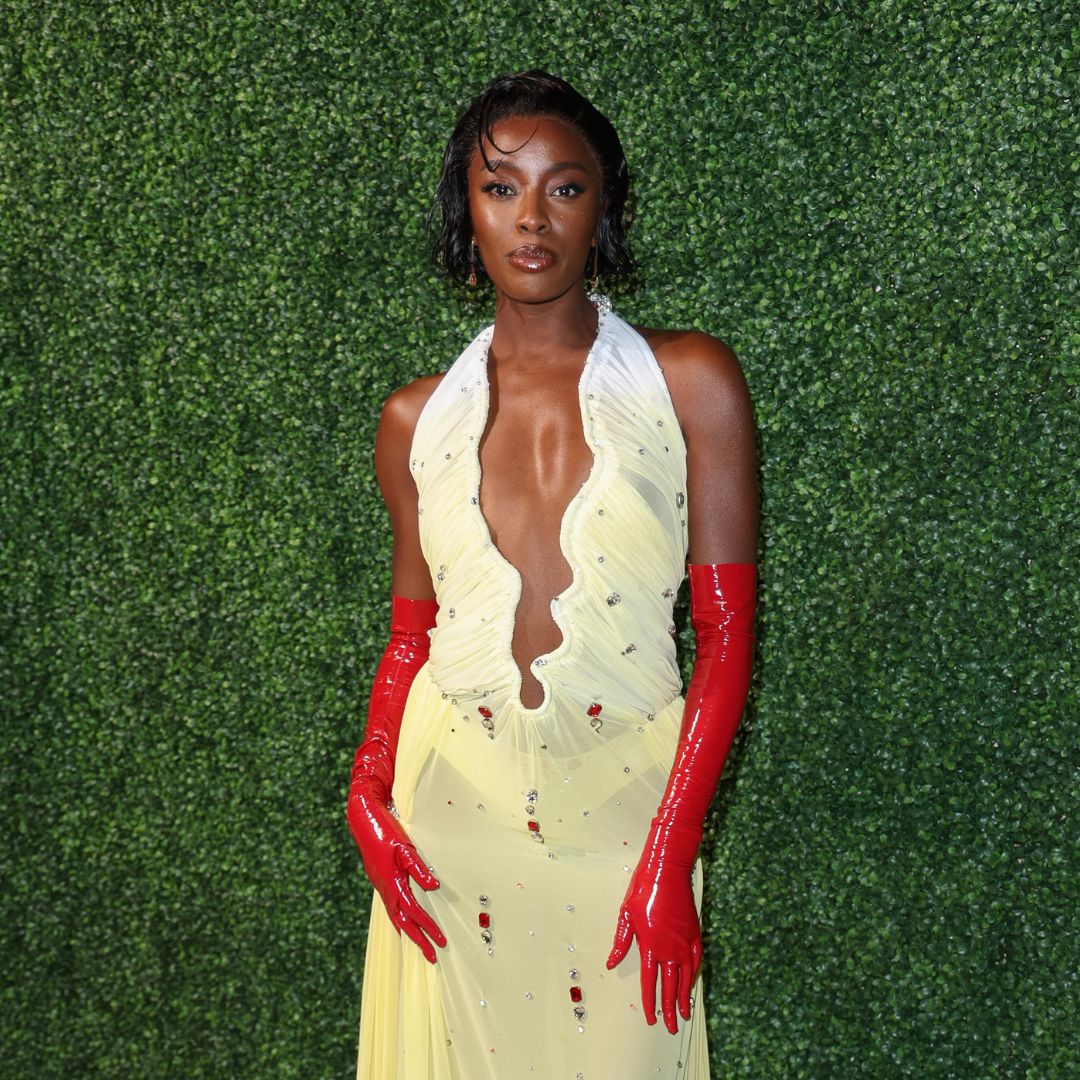 Anatomy Of A Wardrobe: TV presenter AJ Odudu is carving out her own lane, one show-stopping look at a time
Anatomy Of A Wardrobe: TV presenter AJ Odudu is carving out her own lane, one show-stopping look at a timeWatch as we take an exclusive look inside AJ's wardrobe
By Lily Russo-Bah
-
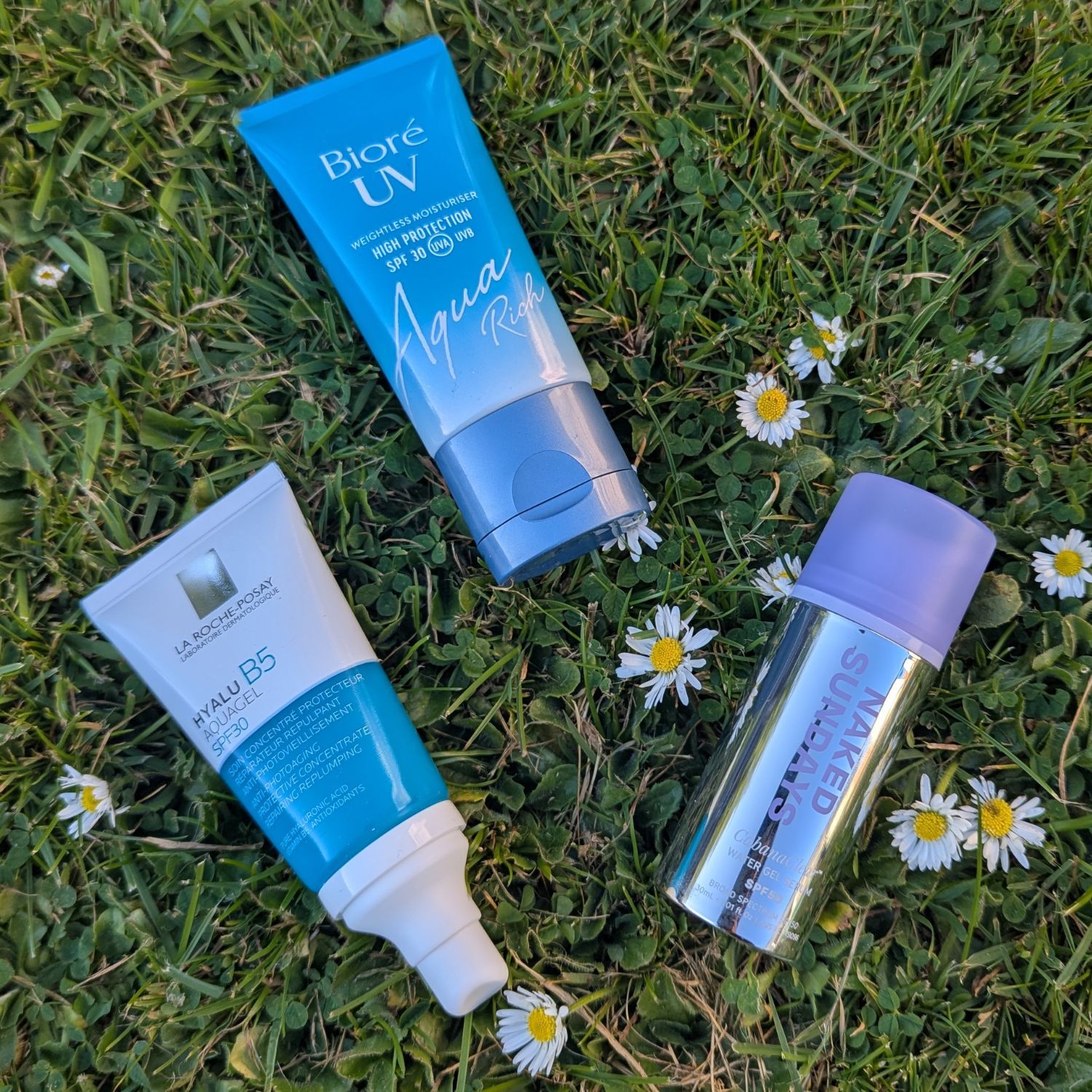 I’ve searched high and low for the best lightweight SPFs—these hydrating, water-based ones are a total game-changer
I’ve searched high and low for the best lightweight SPFs—these hydrating, water-based ones are a total game-changerNo excuses
By Jazzria Harris
-
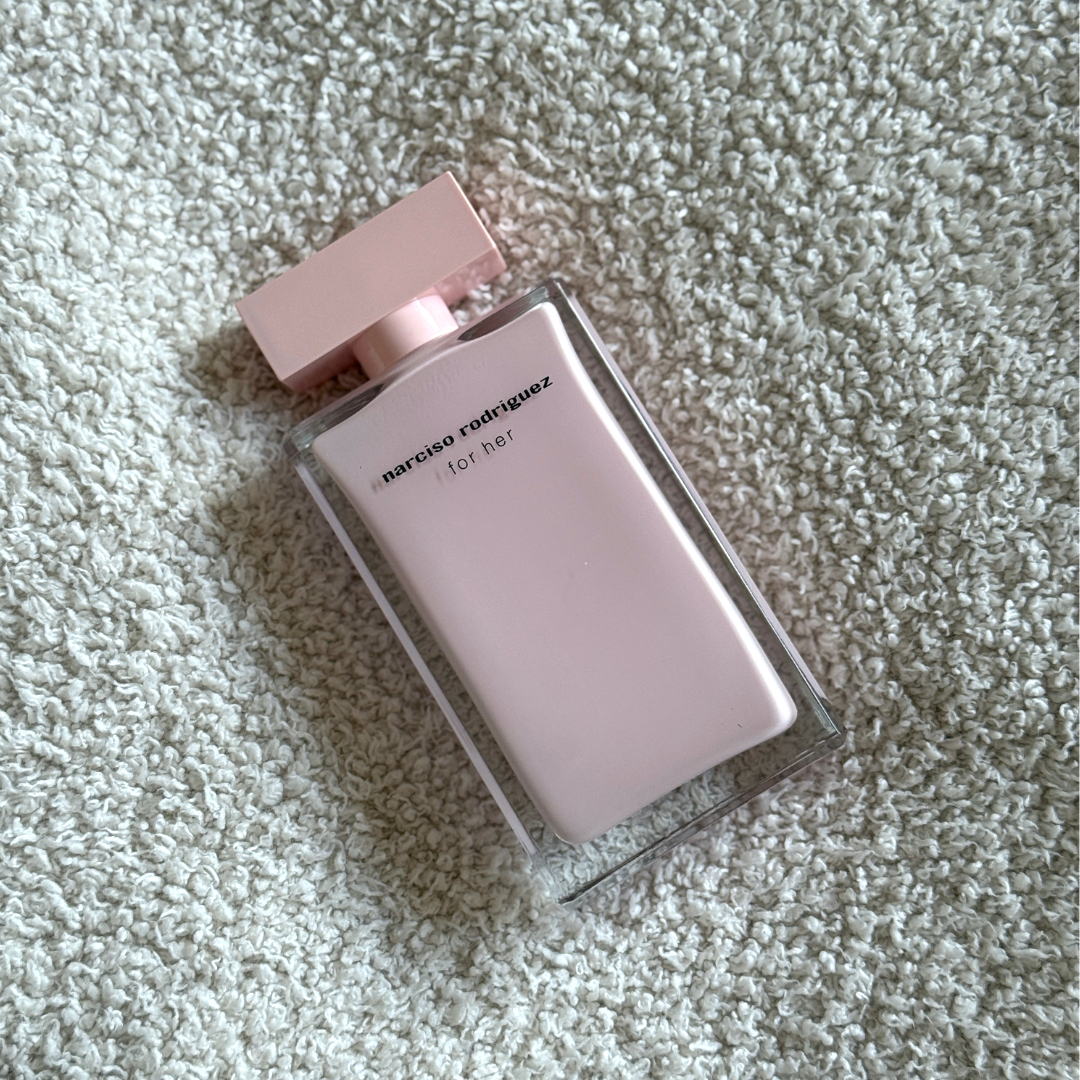 This perfume has been an icon for over 20 years, and for good reason—it’s soft, elegant, and oh so feminine
This perfume has been an icon for over 20 years, and for good reason—it’s soft, elegant, and oh so feminineFeminine but not *too* sweet
By Lucy Abbersteen
